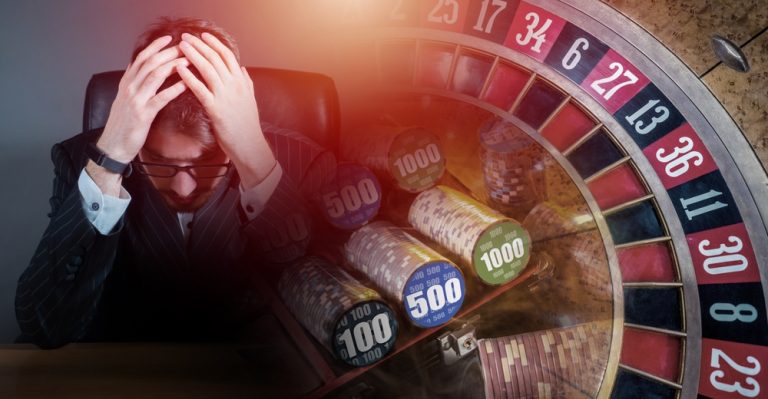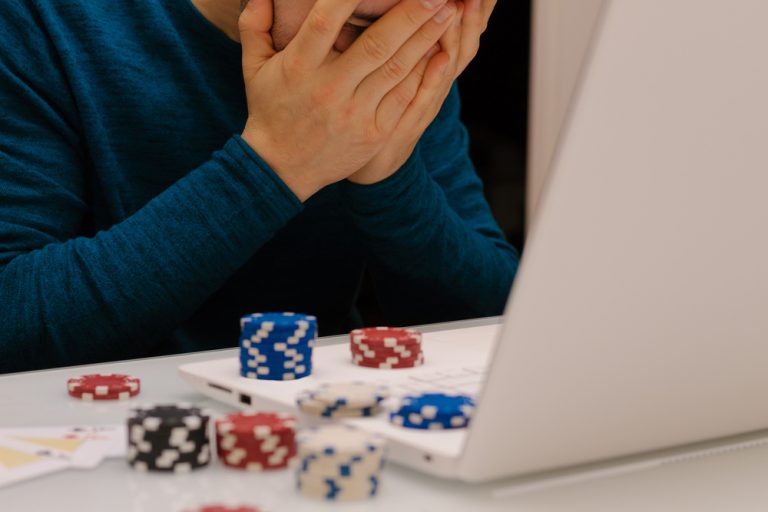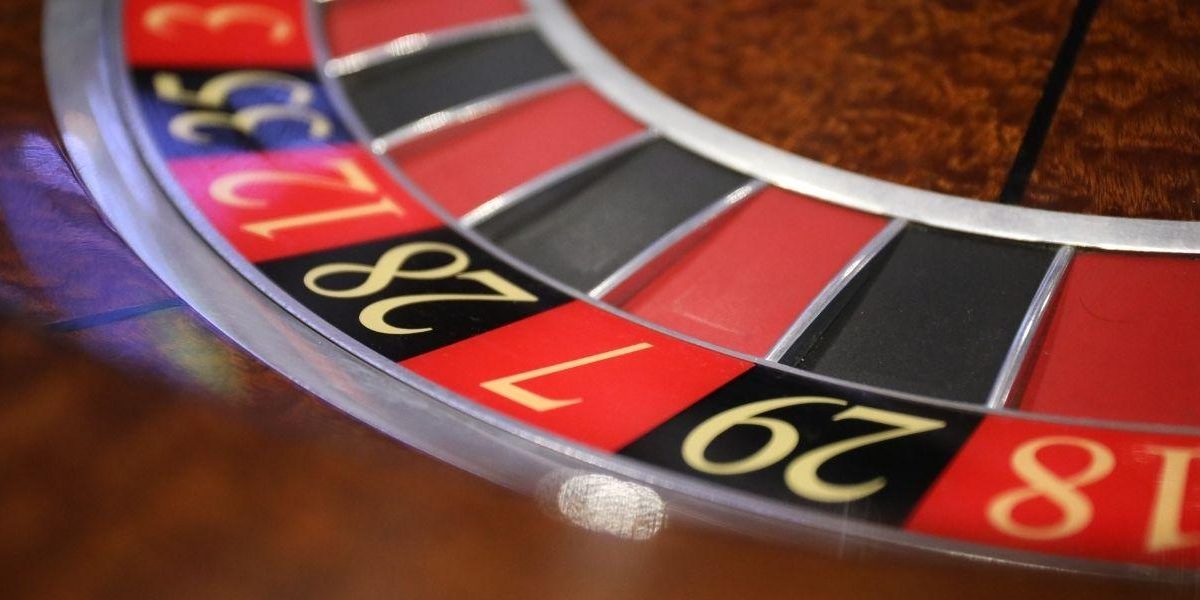According to a report published by the World Health Organisation, 1.2% of the world’s adult population has a gambling disorder. Officials also suggest that this number might be even higher, as not everyone gets the diagnosis or seeks professional help. Gambling addiction is one of several recognized behavioral addictions, as classified in the DSM-5, highlighting its similarities to other non-substance-related addictive behaviors.
Historically, gambling addiction was classified as an impulse control disorder and is still studied alongside other impulse control disorders due to overlapping behavioral and psychological features.
If you or someone around you has been suffering from gambling addiction, we have your back. In this guide, we will provide all the necessary information regarding this behavioural dependency. The field of gambling studies plays a crucial role in understanding the psychological, neurological, and behavioral aspects of gambling addiction. We will brief you about how to diagnose it and, most importantly, how to offer help to yourself and others in need.
Introduction to Gambling Disorder
Gambling disorder, sometimes called compulsive gambling, is a serious mental health condition marked by an uncontrollable urge to gamble, even when it leads to negative consequences. Recognised as an addictive disorder in the Diagnostic and Statistical Manual of Mental Disorders (DSM-5), gambling disorder can affect anyone, regardless of age or background. The American Psychiatric Association has reclassified pathological gambling as an addictive disorder, placing it alongside substance use disorders due to their shared features—such as cravings, repeated unsuccessful efforts to stop, and continued behaviour despite harm.
People struggling with gambling disorder often find it difficult to control their gambling behaviour, which can lead to significant problems with money, relationships, and overall mental health. The negative consequences of problematic gambling can ripple through every aspect of life, from family finances to emotional well-being. Fortunately, gambling disorder is treatable. Many individuals benefit from professional help, including cognitive-behavioural therapy (CBT) and support groups like Gamblers Anonymous, which provide a safe space to share experiences and strategies for recovery. Recognising gambling disorder as a mental disorder is a crucial step toward seeking help and finding hope for a healthier future.
Understanding Gambling Addiction

You enter a casino or simply open a betting app on your smartphone. You play a game or two just for the sake of entertainment, and that’s it. Many people start gambling at a young age, and early exposure to gambling activities can significantly increase the risk of developing gambling problems later in life. However, then there comes a time when you start playing these games regardless of the responsibilities you have. You forget what day it is and what time it is, and you constantly gamble, spending all your precious fortune.
And just when you stop yourself, your mind says, “Just one more round wouldn’t do any harm.” This “one more round” turns into endless rounds instantly, and eventually, you cannot go a day without playing a game. This is what gambling addiction is. It tricks your mind to gamble endlessly, and when you don’t want to, it compels you to do so anyway. These patterns can quickly lead to addictive behaviors and are often associated with risk taking. As the addiction develops, you may have gambled repeatedly despite negative consequences. Risk taking behaviors and addictive behavior play a major role in the progression from casual gambling to addiction.
The Brain and Addiction
Gambling disorders are closely linked to changes in the brain, particularly in areas responsible for reward processing, emotional regulation, and impulse control. Research shows that regions like the striatum and prefrontal cortex play a key role in how we experience pleasure and make decisions. For people with gambling problems, these brain circuits can become dysregulated, making it harder to resist the urge to gamble and increasing the risk of impulsive behaviors.
Genetic factors also contribute significantly to gambling disorders. Twin studies suggest that genes may account for half or more of the differences in who develops gambling problems. Interestingly, both gambling disorders and substance use disorders are associated with reduced activity in the ventral striatum when anticipating monetary rewards. This means that people with these conditions may need to take bigger risks or gamble more to feel the same thrill, which can drive compulsive gambling and make it difficult to stop. Understanding the brain’s role in gambling addiction helps explain why overcoming it often requires more than just willpower—it’s about addressing the underlying biology as well.
Diagnosis
Playing a game or two cannot be characterised as a person having a gambling addiction. Professional aid or expert assessment is crucial in the diagnosis process. Consulting a mental health professional is important for an accurate diagnosis and to identify any underlying mental health conditions.
You can consider reaching out to your healthcare provider, who might:
● Ask questions about how long you have been gambling. This may include inquiring about your gaming habits.
● Administer mental health questionnaires to evaluate the severity of the addiction. Sometimes, gambling addiction may become even worse due to co-occurring mental health disorders. A mental health test battery can help professionals understand the underlying cause and prepare a structured treatment plan accordingly.
● Review your medical history. Some medications can also elicit compulsive behaviours such as gambling as a side effect.
After diagnosis, a mental health professional can discuss appropriate treatment options tailored to your individual needs.
Symptoms
● Consistent thoughts about gambling or remembering past gambling-related events.
● An urge to gamble with a larger amount to attain excitement.
● Inability to quit gambling even when one wants to.
● Irritability or restlessness when not gambling.
● Excessively lying to hide gambling practices.
● Gambling triggered by unpleasant feelings such as loneliness, boredom, or stress.
Mental Health Considerations
Gambling disorder is not just about losing money or chasing losses—it can have profound effects on mental health. Problem gamblers face a significantly increased risk of suicide, with gambling disorder carrying the highest suicide risk among all addictive and substance use disorders. Studies show that about half of people with gambling disorder have thought about suicide, and around 20% have attempted it. These numbers highlight the urgent need to take any talk or thoughts of suicide seriously.
If you or someone you know is struggling with gambling and experiencing suicidal thoughts, immediate help is available. You can call 988, text 988, or chat at 988lifeline.org for confidential support. Remember, reaching out for help is a sign of strength, and support is always available for those facing the mental health challenges of gambling disorder.
Child and Teen Gambling
Despite age restrictions, many children and teens are exposed to gambling, whether in person, through betting shops, or via online gambling sites and games. Some young people develop gambling disorder, which the Diagnostic and Statistical Manual of Mental Disorders (DSM-5) defines as a persistent and recurrent pattern of gambling that leads to distress or impairment. Early gambling problems can be made worse by frequent exposure to gambling content online, including social media, gaming apps, and advertisements for sports betting or slot machines.
Parents play a crucial role in preventing gambling addiction in children and teens. By staying informed about the risks, monitoring access to gambling online, and having open conversations about the dangers of gambling, parents can help protect their children from developing problematic gambling behaviors. Early intervention and education are key to reducing the risk of gambling disorder in young people.
Prevention Strategies
While there is no guaranteed way to completely prevent a gambling problem, there are effective strategies to reduce the risk of compulsive gambling. Educational programs that target individuals and groups with known risk factors—such as a family history of addiction, mental health issues, or early exposure to gambling—can help raise awareness and promote healthy behaviors. People who are at higher risk for compulsive gambling should consider avoiding gambling environments, steering clear of betting shops, and limiting contact with others who gamble.
Early treatment at the first signs of a gambling problem is crucial to prevent the progression to more severe compulsive gambling. Simple interventions, like setting spending limits, using time reminders, and practicing self exclusion from gambling sites, can help interrupt the cycle of gambling problems. Unfortunately, prevention programs are often underutilized, and schools rarely screen for gambling problems or provide education about the risks. Parents are encouraged to talk with their children about loot boxes, gambling games, and the psychological risks associated with gambling. By fostering open communication and promoting healthy alternatives, families can play a vital role in preventing gambling harm before it starts.
Your Role in Recovering From Gambling Addiction

Recovering from dependency, whether it’s related to gambling or any other form, isn’t something that can be achieved without self-involvement. Remember, when the person himself isn’t ready to make a change, the process may just become more challenging.
Your role as someone who wants to recover from gambling addiction must be to: Make a clear commitment to stop gambling, recognizing that this conscious decision is a crucial step in your recovery journey. When experiencing urges, one effective strategy is to postpone gambling by delaying the action, as this can help reduce the intensity of the craving.
Acknowledge the Problem
Self-realisation can solve half of your addiction problems. When you understand that you have this toxic habit and you need to change it, acknowledging yourself as a problem gambler is a crucial step toward recovery. You are more committed to the process. However, this realisation must not scare or upset you. Instead, it must help you identify your true worth and motivate you towards your goals.
Stop the Blame Game
It is very common to belittle yourself due to gambling addiction. The condition can take a toll on your whole life. It may not cause any physical harm to your body, but it can completely destroy your mental health. Mood disorders such as depression, anxiety, and other related conditions can both trigger gambling addiction and be made worse by compulsive gambling.
You may start to overlook daily-life essential duties, neglect family and friends, and when the addiction worsens, you may even end up in debt. All these problems can bottle up in no time and have you land in self-guilt. Instead of blaming yourself during this phase, work on what you can do to reverse the damage.
Avoid External Triggers
You have friends who gamble? Change your company. Gambling-related shows are playing on your television? Just skip the channel. There’s a casino on the way to your home? Simply take another road to your house. In short, avoid everything that triggers your gambling addiction. Environmental factors, such as exposure to gambling environments or advertising, can significantly increase the risk of relapse. And even if you come across a cue, delay the urge until it is resolved.
Engage in Productive Activities
There is no other better way to cure your gambling addiction than keeping yourself busy. Nevertheless, this preoccupation should consist of productive activities only. You can begin with your long-forgotten hobby, engage in exercise, or maybe go for a walk. Remember, no matter what you do, ensure it is constructive and keeps you happy and healthy.
Additionally, consider joining peer support groups, such as Gamblers Anonymous, to benefit from shared experiences and mutual encouragement during your recovery.
How to Help Someone With a Gambling Disorder
Assisting someone with a gambling addiction may be even more challenging compared to assisting one’s ownself. Why? Because you don’t know how the other person may react, or what his or her feelings may be at the moment. To ensure you’re supporting your precious ones the right way, remember that family members play a crucial role in the recovery process by providing emotional support and encouragement. You need to:
Be Supportive, Not Judgmental
A lot of people live with their gambling addiction and avoid confronting it because they fear being judged. So, when you have decided to assist someone through the recovery journey, try to be as supportive as possible. Offer kind words and assure the other person that it is okay to commit mistakes in life.
For instance, instead of saying something like, “How could you do this?” Try saying, “Recovery is possible, and I am here to support you through the journey.”
Hold Back Confrontation
When dealing with people suffering from gambling dependency, heated arguments can spiral out quickly. Your job here is to hold back the confrontations and let the person with the problem speak and pour their heart out.
To make everything even calmer, try to be empathetic. Instead of confronting them with “you did this or you’re responsible for all of this,” tell them, “I genuinely care for us.”
Discuss the Consequences
Talk about the consequences of gambling addiction in an honest yet compassionate way. Don’t use accusations or harsh words. Rather, you can discuss how their addiction can affect the people they love or the ones who surround them. Try to focus on solution-oriented conversations and not on unrealistic or harsh goals.
Here’s an example to make it even clearer:
“I have noticed gambling has affected your emotional, financial, as well as social life. I am stressed about the impact this will have on our relationship.”
Listen to Them First and Then Talk
Most people get addicted to gambling due to stress, bipolar disorder, or anxiety. Such people live a disorganised life and have no one to talk to. In an attempt to provide a false impression of being in command, such people will then resort to such addictive behaviour as gambling.
In order to make these people feel better, listen to them first and then share what you have to offer. And when you are offering any help, ensure to motivate instead of mocking or discouraging them.
Suggest Joining Support Groups
Support groups can provide valuable aid in getting rid of gambling addiction. They offer a safe and understanding space for people to speak about their struggles. Moreover, it allows everyone to share their wisdom and learn from each other without being judged. Two common support groups you can recommend are:
● Gamblers Anonymous (GA)
● SMART Recovery Program
Recommend Professional Help
Communicate how important it is to seek professional assistance when it comes to recovering from gambling addiction. You can elaborate on how experts can provide structured help or make the recovery journey even easier.
PCP Role in Getting Rid of Gambling Dependency
Expert support can significantly aid in getting rid of gambling dependency. At PCP, we ensure to provide high-grade professional support to everyone enrolled in the recovery programs. Our experts are trained to deliver:
● Individualised Support: Every person’s journey towards healing is different. Experts acknowledge this difference and ensure to provide everyone with a treatment plan that is tailored according to their needs.
● Behavioural Therapies: Sometimes the addiction may have an additional underlying cause. Professionals in this instance can administer therapies such as cognitive behavioural therapy to identify the cause and then formulate an effective, tailored treatment plan.
● Rehabilitation Programs: Dependencies that occur together can worsen gambling addiction. In this case, professionals may recommend undergoing rehabilitation services. Based on the degree of your addiction, you will be required to enrol in inpatient or outpatient programs.
Compulsive Gambling Is a Disorder, but Healing Is Within Reach!
To sum it up, gambling disorder can have a devastating impact on your emotional as well as financial well-being. Regardless of the severity of your addiction, recovery is possible. With a bit of patience, structured support, and, of course, professional aid, gambling can be put to an end.
And when you’re looking for expert guidance, you can always count on Rehab Today by PCP (The Perry Clayman Project). We believe that recovery from any addiction is possible with the right support, and our recovered clients are a living testament to it.
Contact us today to get guidance from our well-trained experts.







